Political War Stories
Former provincial politician Greg Sorbara gives City Life early access to his memoir The Battlefield of Ontario Politics and reflects on his time on the frontlines
The darkest hour of Greg Sorbara’s political career came swiftly and without warning. It was Oct. 11, 2005. Sorbara, then Ontario’s minister of finance, had just wrapped up a meeting with Paul Beeston and Dr. Paul Garfinkel, respectively the chairman of the board and the president and CEO of the Centre for Addiction and Mental Health, who were lobbying for funding for their organization. He had just left his office in the Frost Building and was heading toward the legislature in Queen’s Park when Globe and Mail reporter Karen Howlett approached him. She didn’t waste time. The RCMP, she said, had raided the offices of the Sorbara Group, his family’s development business, as part of an investigation into Royal Group Technologies, a public company of which Sorbara was once a member of the board.
“Did you know your name is mentioned in the search warrant?” Howlett asked.
He didn’t.
“I resigned my seat on the board of Royal Group Technologies two years ago when I became minister of finance,” he said, “so there’s no way this could involve me.”
But it did.
Sorbara had been pulled into an RCMP criminal investigation, one that could potentially snuff out his political life and forever mar his reputation as a public figure. That evening, he met with Peter Wilkinson, his chief of staff, to discuss options. There was only one course of action: Sorbara would have to resign.
“It was certainly a painful decision,” Sorbara says, reminiscing about the worst day of his life in Ontario politics. “In the morning I am the second most powerful politician in the province, and by the evening I’m out.”
It’s a cool, overcast day in August as Sorbara, 68, reflects on his days in the Ontario legislature from his Richmond Hill home. The “Royal Issue,” as he calls it, is the jumping off point of his new book The Battlefield of Ontario Politics, a memoir that chronicles Sorbara’s and his family’s life and gives a behind-the-scenes look at the inner workings of the world of politics in the province. I’m meeting with the now-retired MPP and former minister of finance to discuss this new book, which isn’t due out for another two months, but we’re fortunate enough to get our hands on a revised manuscript before it hits the press.
Sorbara explains he’s worked on the Battlefield project for the better part of the past 12 months, essentially since he officially retired and left his position as chair of the Liberal election campaign a year after he stepped down as MPP of Vaughan.
“I talked to a few friends and thought, ‘You know what? We don’t have enough in print on Ontario’s political history,’” Sorbara says of his motivation for the book. “Having been there for almost 30 years I thought maybe it’s up to me to add something to the analysis of Ontario politics.”
He begins Battlefield with the Royal issue because it was such a pivotal point of his life. It was a highly publicized white-collar criminal investigation over conflict of interest regarding Royal’s purchase of an industrial building. Sorbara left his position on Royal’s board before being named the minister of finance in 2003, so he knew he was innocent, that the RCMP was just gunning for a high-profile target. But accusations can be just as damaging as verdicts and it was a struggle to keep his head above water.
“For the first month I thought this would be the defining issue,” he says. “Every story that might ever be written about me would start with, ‘Greg Sorbara, who had to step down as finance minister because of an RCMP criminal investigation.’ I thought that would be the frame within which all stories were told.”
For eight months Sorbara lived with that burden weighing on his mind, but he would persevere. In the spring of 2006, he would find redemption when his name was finally cleared. The release of anxiety when he was given the good news was like a ball and chain being unshackled from his neck. “I’ve never felt anything like that,” he says, “and truth be told I could not stop crying for a half an hour.”
Sorbara is unquestioningly a captivating speaker, something he no doubt honed over his 25 years in the legislature. He’s personable and charismatic, constantly shifting the tempo and rhythm of his voice, talking with his hands and moving his body to the flow of words. It all adds an element of drama and theatrics, like he’s right back up on the grandstand, speaking to scores of onlookers.
It’s no surprise that Sorbara was so successful in the public light. Love him or hate him, as so many right-leaning voters did, there’s no denying the achievement of his career. When he tossed his hat into the political ring in 1985, he was part of the Liberal election campaign that dethroned the Progressive Conservatives for the first time in 42 years. Once elected, he became the first Italian-Canadian to be appointed to the Ontario cabinet and was given two portfolios in his rookie year as both the minister of colleges and universities and the minister of skills development. Before he served as the finance minister of Ontario — which amounts to being a four-star general in the political world — he was the campaign chair for the Dalton McGuinty-led Liberals during their string of election victories in 2003, 2007 and 2011 — a feat the Grits hadn’t accomplished in over 100 years.
Steve Paikin, Canadian journalist, anchor of TVO’s The Agenda and personal friend of Sorbara, believes that Sorbara was an indispensable player during McGuinty’s historic run as premier of Ontario. “It’s probably not going too far to say he was the chief architect of those three consecutive victories,” he says.
Paikin still remembers meeting Sorbara back in 1985 after he won the seat for the Vaughan riding. It was obvious that Sorbara was raw and inexperienced, but the recently elected MPP had a “new energy” and dynamic quality to him — an attitude emblematic of the new wave of Liberals in the ’80s. “The fact of the matter is he’s a terrific speaker, he loves people, he cares about issues and he is the kind of guy who is really easy to connect with,” Paikin adds.
Dalton McGuinty shares this sentiment. “I liked Greg from the moment I met him,” says the 24th premier of Ontario. “I always found his energy, his creativity and his youthful idealism remarkable.”
In the late ’80s, Ontarians began falling out of love with the Liberals. That displeasure amounted to the Liberals being “thrashed,” as McGuinty puts it, in the 1990 general election, as the party lost 59 seats. McGuinty and Sorbara were two of the few survivors of the left, and negativity permeated throughout the camp. Sorbara, however, saw the silver lining. “Greg’s a never give-up, never give-in kind of guy,” McGuinty explains. This situation presented plenty of exciting opportunities, “and he brought this irrepressible optimism into the room and wherever he went.”
Thirteen years later, when the Liberals would regain power, McGuinty feels that as minister of finance, Sorbara wielded a responsible approach to his fiscal policies. As party president and chair of the Liberals general election campaign in 2003, Sorbara helped Liberals be “true Liberals,” meaning he brought “a balanced, thoughtful, progressive plan to Ontario politics” that benefitted infrastructure, schools, health care and the disadvantaged, says McGuinty. For McGuinty, Sorbara was a colleague, a mentor and a friend.
Sorbara’s energy was undoubtedly key to why so many gravitated toward him during his career. He’s charismatic and friendly, with a warm, fatherly quality about him. Even if you’re a diehard conservative or NDP advocate, Sorbara has an effortless affability that is hard not to like. He speaks openly about his life, making it feel like you’ve known each other your whole lives.
In Battlefield he’s equally as open, writing candidly about his family history. When his father, Sam, moved from Calabria to Canada in 1925, for example, he lived in real poverty in Guelph, Ont. Sam’s father was an alcoholic and his mother passed only a few years after he arrived. Being the eldest child, Sam was thrust into the role of surrogate parent. During the Great Depression, Sam would be forced to do whatever he had to to survive, which included bootlegging alcohol. Sam would spend three years in prison for passing counterfeit money — a charge he was officially pardoned for 30 years later.
Sorbara’s personal upbringing was a complete contrast to his father’s. He grew up in Toronto with a “silver spoon lodged firmly in my mouth,” he writes, never having to worry where his next meal came from. He credits that life to his father’s success with the Sorbara Group. In his teens, Sorbara considered joining the priesthood, but celibacy didn’t quite appeal to him. He spent four unsuccessful years at the University of Toronto, where he “quickly learned to skip classes” and “avoid exams.” Counsellors suggested that perhaps business wasn’t right for him; maybe social work was more up his alley. In ’67 he joined the Company of Young Canadians as a volunteer and, along with a band of other “young radicals bent on changing the world,” he was assigned to work with dropouts in Vancouver, B.C. It was during these rebellious days that he would meet his future wife, Kate. It was love at first sight. “I just remember thinking, ‘That’s the woman I want to spend the rest of my life with,’” he says. “It was a startling realization.”
Of course, a book titled The Battlefield of Ontario Politics certainly wouldn’t be complete without action from the frontlines, and Sorbara dedicates plenty of room to outlining the struggles and strategies of election campaigns and overcoming political obstacles without shying away from the times when promises had to be broken, including the introduction of the HST and Ontario Health Premium, two tax reforms that drew the ire of the opposition and the public alike.
“It was a rough period,” Sorbara says of implementing the OHP, which came only nine months after promising not to raise taxes in the 2003 election. It was the toughest decision he made during his time as the minister of finance, but with the $5.6-billion deficit left by the Tories, the Liberals needed more funds to follow through with their commitments and balance the budget. “We knew we had to do it if we were going to have enough revenue to deliver on the promises that we had made in health care and education.”
Perhaps one of the most interesting moments of the book is Sorbara’s breakdown of the Oakville and Mississauga gas plant cancellations of 2011, a $1-billion scandal that spurred McGuinty’s resignation and brought on an attack from the opposition that included a contempt motion at energy minister Chris Bentley, allegations that political staffers had deleted crucial emails regarding the plant cancellations and a criminal investigation by the Ontario Provincial Police.
Sorbara defends the Liberals and McGuinty’s decision to close both plants, arguing that the opposition supported cancelling both gas plants. When it was announced that the Oakville plant was to be cancelled in October 2010, a year before the 2011 election, “there was no human cry from the opposition,” he says. “They supported it. They were onside with the decision. It was a non-story.” Tim Hudak, the PC’s leader, even vowed to close the plants if elected.
“Politics can be a very vicious business,” Sorbara says. “Because the government was in a minority situation, the opposition parties decided to exploit the gas plant closures as effectively as they could. I give them credit: they did a very good job of developing a mythology and then putting that mythology before the public. And the public ate it up like crazy.”
But, he adds, the general election is always the “cleansing element” for all political scandals. “And the general election that gave Kathleen [Wynne] a majority cleansed all of that negativity that the opposition parties were trying to throw at us.”
But not everything in politics is all war and metaphorical bloodshed. There are those times when the long days, sleepless nights and hard-fought battles result in something worth being proud of. For Sorbara, that’s the 2007 budget. That budget, he explains, was geared toward the most vulnerable populations in Ontario. It included increased WSIB premiums and resources to legal aid, but the centrepiece was the Ontario Child Benefit. Over five years, the OCB gave more than $2 billion of financial support to low-income families to provide for their children. “The whole budget was directed at helping those who really need government to help them,” says Sorbara, “and I was very proud of that. As a Liberal, those things are important.”
For the past hour we’ve gone through the highs and lows of his political career and chatted briefly about his future: about being named chancellor of York University, his ongoing work to raise money for the Vaughan hospital and about becoming a hotelier (they recently purchased and are restoring the Royal Hotel in Picton, Ont.).
But looking back, I ask, what is the most valuable lesson you’ve learned?
“The best lesson?” he says, pausing to let the thought percolate. “I think the best lesson is that it’s important to persevere, to keep on toiling at the mission that you’re on.”
He uses the example of the subway extension to York University. He first proposed it in 1986. It will open in 2016, 30 years later.
“You can’t allow yourself to be overcome by adversary or missteps or setbacks.”
And Sorbara should know: it hasn’t steered him wrong yet.
The Battlefield of Ontario Politics will be available this November


































































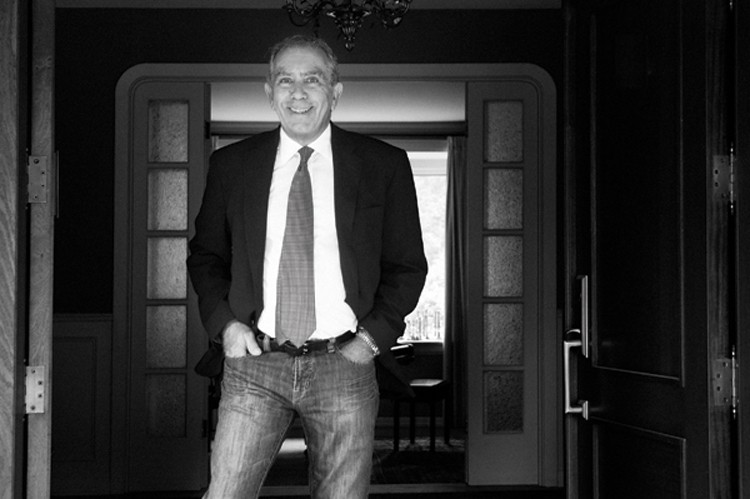
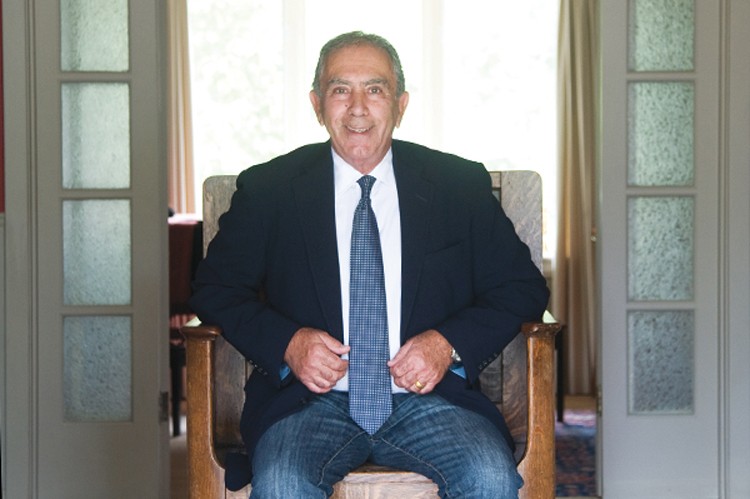

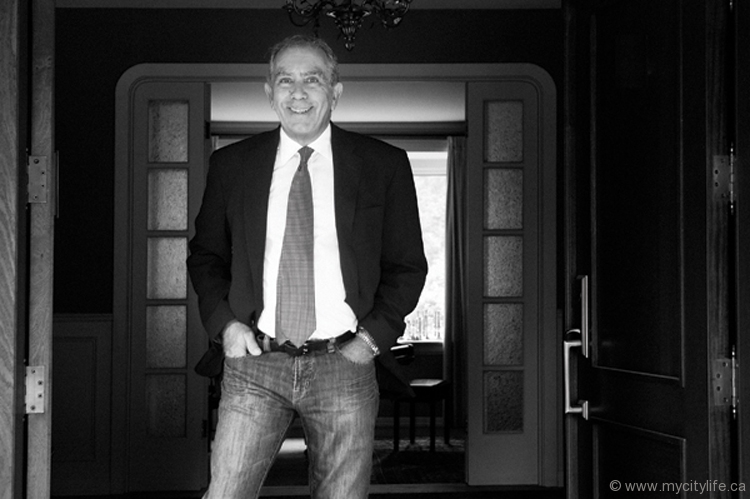


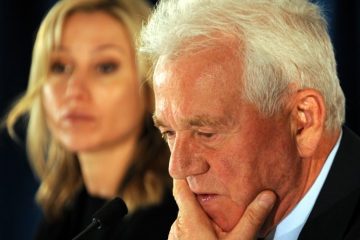
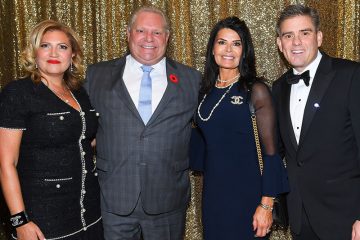


1 Comment
Can’t wait to read this!